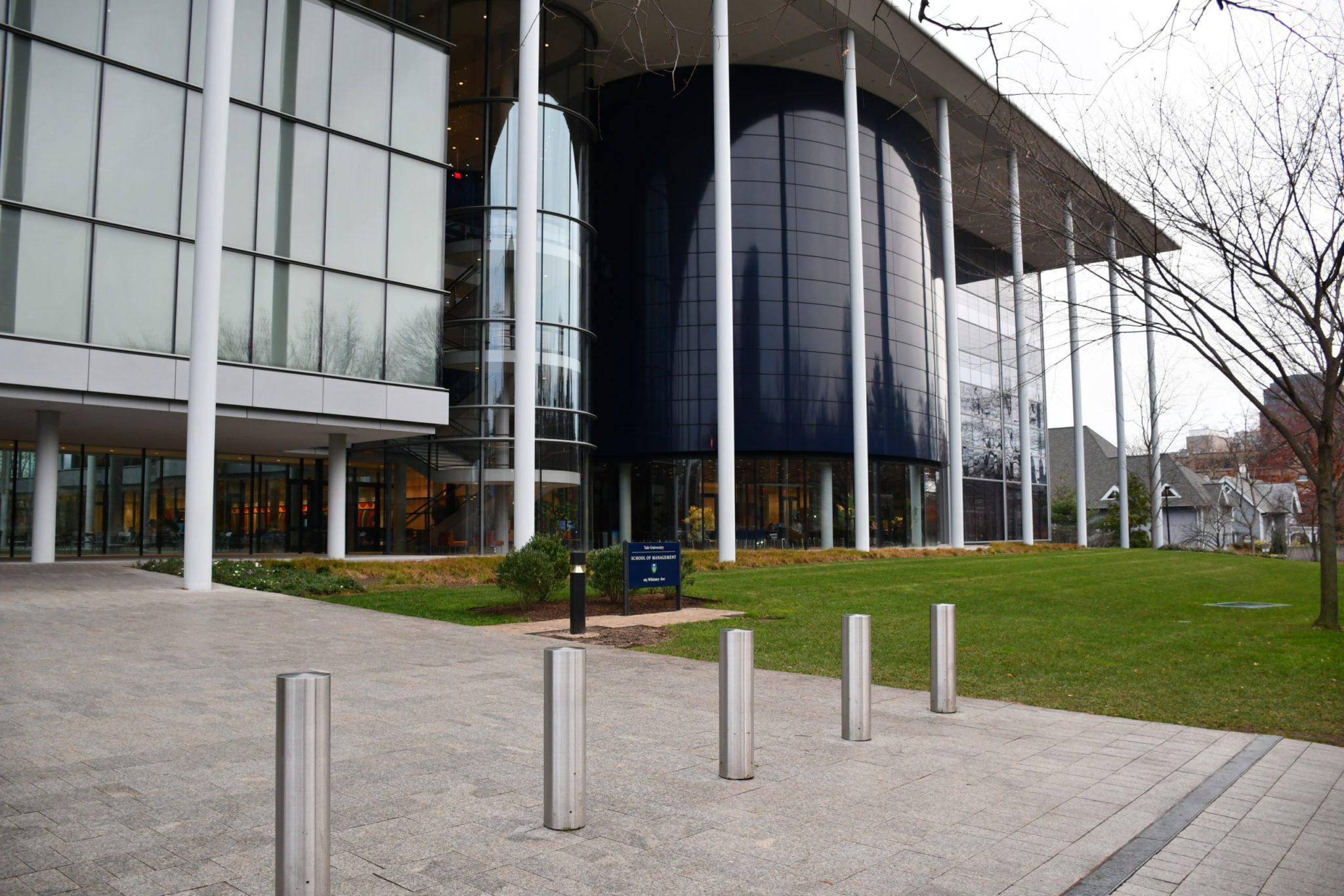18th Annual Yale Healthcare Conference engages industry professionals and students in conversations on current healthcare issues
Industry leaders, professionals and scholars discussed healthcare accessibility and an increasing need for patient-centered innovation during this year’s 18th Annual Yale Healthcare Conference.

Joshua Baehring, Staff Photographer
The Yale School of Management and other Yale health professional schools hosted their 18th annual healthcare conference on April 1, gathering a global panel of industry leaders, scholars and clinicians to discuss the world’s most pressing healthcare issues.
Student-organized and hosted at Evans Hall, this year’s conference was titled “Taking the Pulse: Humanizing Healthcare Through Patient-Centered Innovation” and was made possible by a donation from Northwell Health. Despite being held in-person, there was also a virtual option for attendees who were unable to commute to New Haven. Among the topics explored at the event were how digital solutions could empower specific communities, putting patient-centric innovation at the forefront of the industry, and imagining the future of clinical research in a pandemic world. During the conference, entrepreneurs and policy experts also engaged in a debate on whether patients should be considered consumers in health care.
“We are talking about really hot issues today, and you’re not going to find yourself agreeing with one another,” said Lydia Li, SPH ’22 and student co-chair. “And that’s sort of what we were looking for. … We have a lot of areas where you will run into people who have completely different perspectives.”
Student co-chair Daisy Bourne SOM ’22 emphasized that the organizers hoped that the conference would inspire discussion on how patients could be “put … at the heart of health care.” In an industrializing healthcare landscape, she noted that there is still much more progress to be made in making services more patient-centered, transparent and accessible to community members.
She said that the main questions discussed would be focused on what it means for healthcare to be patient-centered, how can the industry achieve that and why has it not achieved that yet.
“In my four decades [as a public health expert], it’s shocking how often patient points of view are not highlighted, shocking how often they are not respected,” Yale School of Public Health Dean Sten Vermund said. “We’re still not there yet. Not here, not internationally.”
Throughout the conference, panelists and health care professionals emphasized the challenges currently confronting the behavioral health space. A number of regions have been grappling with terrifying statistics in terms of accessibility to psychological resources, said Julia Bernstein, vice president of operations for Thirty Madison and angel investor of companies in behavior health and digital health space, as she cited areas in California that had one adolescent psychiatrist to serve the entire county.
According to Bernstein, many of these quantitative issues apply to everyday people as well, with many patients being familiar with the process of waiting months for appointments and traveling many miles to reach a specialist. She also mentioned “specialist level telemedicine” as a potential solution to increasing visibility and accessibility to management of chronic conditions. It is a program where institutions create protocols for narrow conditions and train internal medicine staffers and providers to offer specialist level care remotely.
This year’s panel featured Elisabeth Rosenthal, editor in chief of Kaiser Health News and author of An American Sickness, as the keynote speaker. She described that health care inaccessibility was not the only issue — there also exists global disparities in costs for similar services.
It was not until Rosenthal lived in Europe that she realized just how exorbitantly priced healthcare services in the United States were. After returning to the States, she sought a colonoscopy screening that she expected to be free. Upon receiving the explanation of benefits, she discovered that the bill turned out to be $12,000, most of which was attributed to a “facility fee.” She then described receiving a “happy note” from her insurance, which essentially told her, “Don’t worry, we bargained on your behalf, and we only paid $9,000.” That was when she realized that the sustainability of the U.S healthcare system “is in real trouble.”
The School of Management is located on 165 Whitney Ave.







